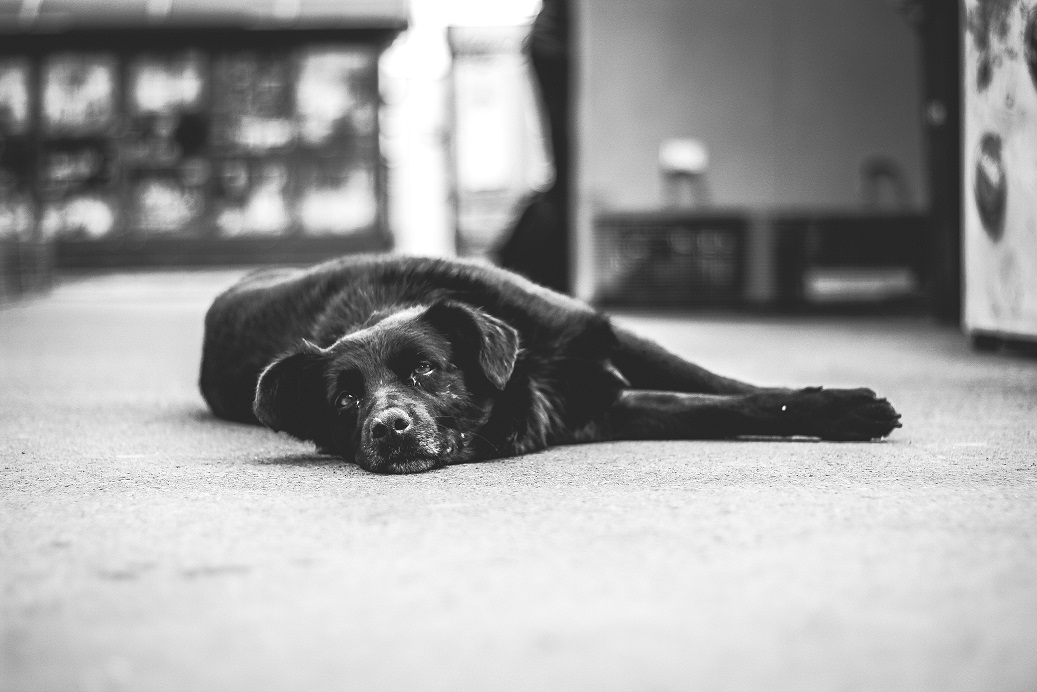Posted on 18 Mar 2020 in Cats, , Pet Care, Disease, Dogs, Darwin
End Of Life
For many of us, there will come a time when we must make the tough decision to let our pets go.
We all hope that our pets will alleviate us of having to make that choice by quietly passing away in their sleep. However, for most pets, that is uncommon, and we are left with the anguish of deciding when is the day. There is always the quandary- am I robbing them of time or am I prolonging suffering for my own sake. No answer is simple, and every situation is unique.
There is often a lot of guilt around the decision but every one agrees we don't want our pets to suffer. However, it is not always that easy to decide or quantify suffering, especially in a pet who can't speak. Vets will try to work with you, the owner, to get an understanding of how your pet may be feeling and then get a sense of what level of suffering your pet may be at. You may be asked to fill out a Quality of Life Questionnaire which can help to make you think about aspects of your pets behaviour which you may not have considered.
For most of us, we simply "know" when the time has come. It is that look in their eye, that sadness that wasn't there before and the sense that our pets have had enough. Many owners pre-empt this look and book in with the vet early, others see it late on a Saturday night and need to call the vet out after hours. There is no right or wrong, it is simply their time.

So what happens next?
Next, you will need to choose if you would like your pet's end of life to happen at home or in the clinic, and whether you would like to be present or not. Many owners find it too distressing to stay through out the process whilst others need closure to say good bye. Again, this is a personal choice with no right or wrong answer. There will be a form to fill out for legal reasons and a discussion about cremation or burial. Then, your pet may be sedated if they are worried or uncomfortable which is a small injection under the skin of the neck similar to where your pet was vaccinated. Some vets may place an IV catheter as well. If your pet is sedated they will become quite sleepy. You may choose to leave then or stay for the final injection.
Next step is giving your pet an injection in to the vein. The injection is a high concentration of anaesthetic, so your pet will literally go to sleep. Sometimes, as a normal part of passing, there may be some twitching and agonal gasping. This is a normal part of the process and your vet will talk you through this. The vet will then listen for a heart beat to be sure your pet has gone. Your pet may evacuate their bowels at this point and will not close their eyes. Again, this is a normal part of passing.
Cremation or burial?
In Darwin we are fortunate to have a pet cremation service where we can have our pets cremated and either retain or spread their ashes. This comes at an additional cost. Some areas allow us to bury our pets in the yard but it may be best to check with your local council on requirements. Alternatively, you may choose to leave your pet with us and they will be placed in a communal burial ground via the council.
The passing of a much loved pet can be a very difficult time for yourself and loved ones plus any other pets in the family. Grief in your pets passing is normal. Do not hesitate to reach out if you are having difficulty coming to terms with the loss of your pet. There are a number of counseling services in Darwin that specialise in Pet Grief Counseling. in addition, if your remaining pets are showing signs of depression and grief, talk to your vet about giving them coping strategies and medication to get through this difficult time. you are not alone.
Photo by Pavel Anoshin on Unsplash

